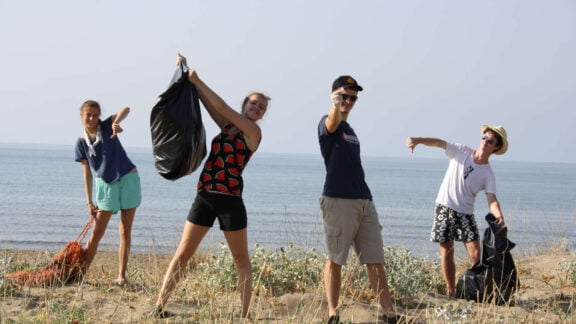Every five years, all European citizens from 27 nations vote to elect members of the European Parliament. One of the major European Union institutions, it plays a vital role in making decisions about many issues that touch the lives of almost 450 million people.
What sets this election apart is that the political groups in the European Parliament are made up of EMPs from many European nations who share common ideology, and points of view. Not by nationality. This is an example of the so-called European political space, which continuously interacts with each EU’s national politics.
But in order to fully understand all that, let’s go back to the past. Many years ago, I visited Jean Monnet’s residence, around 50 kilometres west of Paris, while doing my Master’s degree at the Sorbonne. This is where this cognac sales representative had a fantastic idea, barely five years after WWII ended.
He sought to strengthen economic relations between France, Germany, and other European countries to prevent further wars on the continent. To bring French and German steel and coal production under a transnational body. This was the first move toward European integration, which led to the 1957 Treaty of Rome, gradually to a common market, and finally to the current European Union. It also led to a common currency, the Euro, with a GDP of around 19.35 trillion US dollars in 2024. However, the EU is more than a common market or a free trade pact. It embodies several shared values aligned with human rights and democratic ideals. It has allowed Western Europe to live peacefully for nearly seventy years. I still remember the letter written by a German soldier congratulating Jean Monnet for his excellent concept, which was displayed in his house, which has now become a museum.
Back to the June 9, 2024, European elections, the balance of power in the European Parliament has stayed virtually unchanged. The European Popular Party (EPP) (Conservatives) won 10 seats and elected 186 EMPs. Socialists and Democrats lost four seats while electing 135 MEPs. The Liberal Renew Europe – RE lost 23 seats while electing 23 EPM candidates. As a result, these three European political parties, which previously worked together, obtained a comfortable majority of 400 seats out of 720 (55.55 per cent).
In the European elections, the European Greens lost 18 seats, or 25% of its EMPs, in the European elections on June 9, 2024. Dropping from 20.15 per cent in 2019 to 12.1 per cent in France and from 13.5 per cent to 5 per cent in Germany and to some observers, the Greens’ future in the European Parliament in the coming years could be uncertain.
The biggest surprise was the Liberal Renew Europe party’s collapse, which lost 23 seats in the European Parliament. Emmanuel Macron’s political party, Renaissance, and its allies suffered a significant defeat in the European elections. It secured 14.60 per cent, while the French Socialists received 13.83 per cent. And Marine Le Pen’s political party received 31.37 per cent. In electoral terms, the French president’s party was found sandwiched between the left and the right, which automatically reduced its electoral space.
At this point, we must remember that in France, like in all European countries, there has long been a traditional divide between Right and Left. This explains why, since 1945, all French presidents have been either conservatives (De Gaulle, Pompidou, Chirac, Sarkozy) or socialists (Mitterrand and Hollande), apart from Liberal Valery Giscard d’Estaing, who served as president of the French Republic from 1974 to 1981. His former Prime Minister Raymond Barre (1976-1981) once stated that the two major mainstream political parties saw D’Estaing as a usurper.
Since 2017, Emmanuel Macron’s electoral strategy has also focused on uniting centre-right and centre-left moderates beyond the right-versus-left divide. After Valery Giscard d’Estaing, he became the second liberal president since 1945.
However, given that he cannot seek a third mandate, I believe that Conservatives and Socialists wish to turn the page when he leaves the Elysée Palace in 2027—making his presidential mandates, like Giscard’s, a parenthesis in French politics. And go back to the basics.
Under these circumstances, Emmanuel Macron’s choice to conduct legislative elections on June 30 for the first round and July 7 for the second round appears logical even if it is, in my opinion, a highly risky political tactic aimed at determining whether French voters will vote for another Liberal president in 2027, or not.
Greek-French political scientist and contributor Dr. Georges Tassiopoulos, will present an online-only lecture, “Græcia Gallica: The Greek Diaspora in France,” on Thursday, 20 June 2024, at 7 pm for the Greek History and Culture Seminars, hosted by the Greek Community of Melbourne.
Event Details:
When: Thursday, 20 June 2024, at 7pm
Where: Streamed live on both Facebook and YouTube









